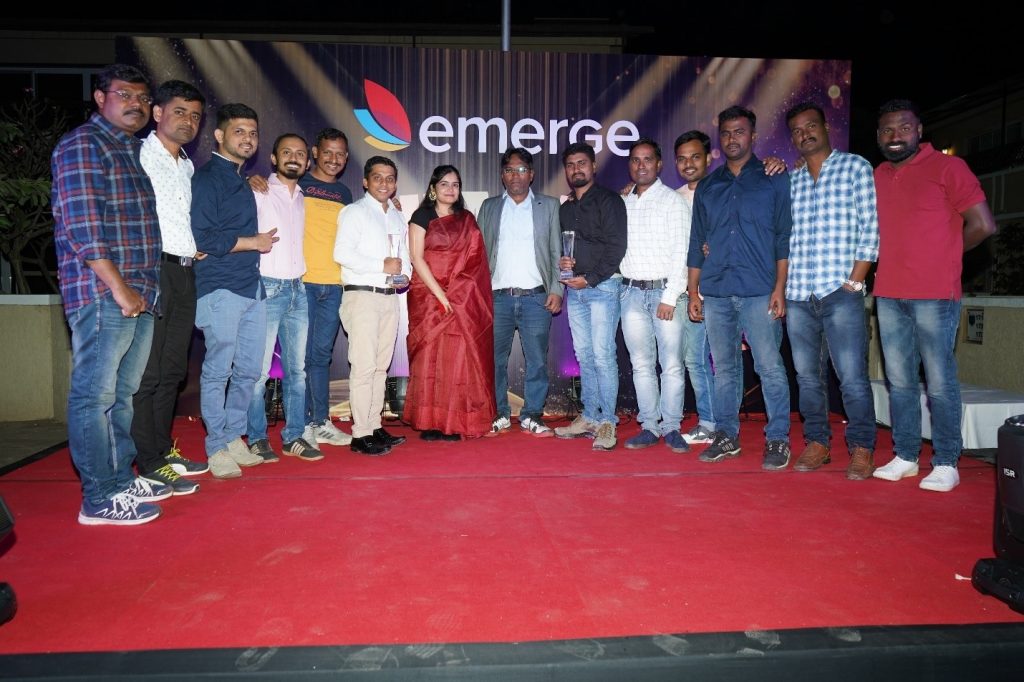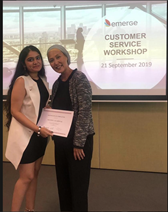Medha Agarwal (Class of 2021)
An integral part of Human Resources: Connecting with People


Human Resources (HR) is a function that every organisation has. HR can describe both the HR professional within an organisation and the department responsible for managing all matters related to their employees. HR deals with the most complex and valuable assets of any organization- people. HKU MBA met with Medha Agarwal, a current student of the HKU MBA full-time programme and HR manager for Emerge. She has agreed to share her valuable insights and experience with us:
HKU MBA: You started your career as a Client Relationship Manager before transferring into the HR Function. How did this occur?
Medha Agarwal: There is a lot in common between a client relationship role and a HR position as both are people centric. My client relationship role was for a global IT solutions provider where I was focused on expanding new business through cultivating existing clients and exploring new international markets. I was transferred to the HR function by a management decision within the organisation, and then received a fast-track promotion after the company was acquired by a Japanese IT management services company.
I truly enjoy working within the HR function as I can utilise the client facing skills I learned as a Client Relationship Manager: skills such as serving, connecting, guiding, coaching and people training.
HKU MBA: What do you think is the core part of the HR function?
Medha Agarwal: The HR role is about connecting with people, meeting with people, and interacting with people. This is not something that is replaceable by any form of IT system or automated solution, as the human being is too complex to be defined by an algorithm. Hence the core part of the HR function is understanding people. The HR team bridges the gap between managers and employees by addressing demands and grievances.
I believe that my international background has become a solid foundation for building my people skills. I was brought up in different economic capitals of Asia: Lived in Dubai for 10 years, Malaysia and Singapore for 7 years, sought an internship in Indonesia, did my undergraduate in India and now in Hong Kong for my MBA. Throughout my life I have met various types of people from different cultures and backgrounds. This type of experience has been the backdrop to my professional HR career.

HKU MBA: What has been the most challenging part of your HR career?
Medha Agarwal: When the pandemic hit all of us last year and everything was suddenly put to a force stop, my team was still working because of our presence on
the trade floor. Mumbai, where the stock exchange is, was also one of the worst hit Indian cities by the pandemic. It was extremely difficult for me to ask my team members to continue with their life as usual. This was extremely difficult for me to do. As very shortly I had held an employee wellbeing and mental health workshop which has immensely helped for the adoption in the new environment.
HKU MBA: What has been your most fruitful moment working within HR in India?
Medha Agarwal: I am immensely proud of conducting and delivering various workshops and trainings. I had noticed that some of my colleagues were lacking in skills. By leveraging my own experiences, as well as my enhanced trainings, I was able to tailor training materials and provide training to the team that helped develop their customer services capabilities.
I could have been simply outsourced this task to an external third-party agency, but they would not have had a deep understanding of the business and my team members’ day. I remembered training colleagues who were twice as experienced as me. The outcome was successful, and the client feedback was excellent.


HKU MBA: Lastly, what is your personal advice for aspiring HR professionals?
Medha Agarwal: HR is the part of the business that engages with employees for the entirety of their employment and it engages with an employee more than any other part of the business. It is not just about connecting with people; it includes people strategy, legal requirements, training, performance reviews, recruitment, mentoring, communication management, project management, competency enhancements, exit processes and so on… Documentation is also a big part of the role as there is often a lot of paperwork. The most important part is to learn the importance of human interaction and physical engagement.
My advice for any aspiring HR professional is to be a human being and be transparent. After that the rest will naturally follow.













